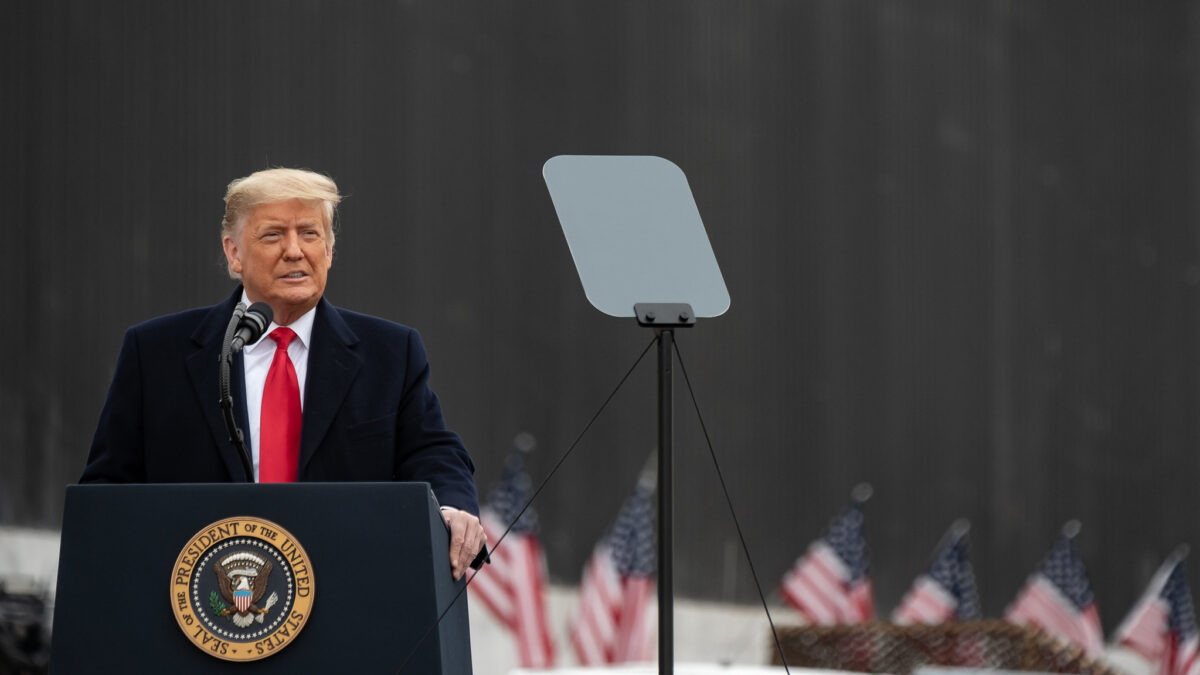Experts on a Heritage Foundation panel predicted the U.S. Supreme Court would rule in favor of former President Donald Trump in its Colorado ballot disqualification case, as the court prepares to hear oral arguments Thursday morning.
“It would take an absolute complete collapse of Trump’s legal team for him to lose everything. It’s possible, right? But he’d have to lose every single human point,” South Texas College of Law Professor Josh Blackman said. “In order for Trump to lose, he has to lose ‘bigly.’”
At 10:00 a.m., the Supreme Court will hear Trump’s appeal to reverse the Colorado Supreme Court’s Dec. 19 ruling, which sided with Secretary of State Jena Griswold in removing the former president from the state’s 2024 primary ballot.
Five experts on a Heritage Foundation panel Wednesday pointed out the legal flaws in the Colorado ruling, as well as the subsequent move by Maine Secretary of State Shenna Bellows – a 2020 Joe Biden elector – to remove Trump from the state’s primary ballot.
The panel included Blackman, Heritage’s Vice President of the Institute for Constitutional Government John Malcolm, manager of Heritage’s Election Law Reform Initiative Hans von Spakovsky, Indiana Attorney General Todd Rokita, and attorney Patrick Strawbridge.
“The issue is whether state authorities, not just courts, but a lone state official has the ability to disqualify an otherwise qualified candidate for president,” Spakovsky said.
The Supreme Court will likely aim for a unanimous ruling due to the high consequence of the matter, both Rokita and Strawbridge agreed.
“I do think the court will want to try to decide this case in as unanimous a fashion as possible,” said Strawbridge, who has litigated before the court. “There will be a desire to not just have a 6-3 decision or a 5-4 decision, but to bring some of the other justices along.”
The Supreme Court would have to prove many things to keep Trump off the ballot, Blackman said. He said it is possible the court could see “fragmentation” with different opinions, but unanimity would be helpful for clarity entering the election.
“If you’re going to kick him off the ballot, do it now. Do it quickly. Let’s pick another candidate,” Blackman said. “If you’re going to let him on the ballot, make it clear that he can stay on the ballot and he can be sworn into office. I think a half-measure opinion or a majority of the court that leaves it to Congress is taking a risk. You’re also playing with dynamite.”
The case hinges on Section 3 of the 14th Amendment, which bars certain American officials who swore an oath to support the Constitution, but who engage in “insurrection or rebellion,” from holding public office. The amendment also gives Congress power to remove this means of disqualification.
“Those favoring the Colorado decision argue that Section 3 is self-executing, meaning it doesn’t take an act of Congress to implement it, and that Donald Trump was an officer of the United States,” Malcolm said.
Spakovsky said Section 3 of the 14th Amendment gives Congress the power to carry it out, and that it has done so on multiple occasions like the Amnesty Act of 1872 and the Amnesty Act of 1898. He said state officials do not have this power.
Strawbridge said Congress had historically dealt with issues of ineligibility after elections, so Colorado’s removal of Trump from the ballot not only preempts the usual process, but takes congressional power and gives it to the states.
“There’s really no textual basis to assume that a state official can determine that the person will not even appear on the ballot,” Strawbridge said.
Rokita agreed, stressing that Section 5 of the amendment clearly gives Congress the authority to enforce this law.
“Federalism and the rule of law also mean that every player in the system must respect when the Constitution does entrust an issue to Congress, or more importantly, the American voters,” Rokita said. “Voters will lose all confidence if judges decide that voters cannot even consider one of our nation’s two leading presidential candidates.”
Rokita said the Colorado Supreme Court’s definition of insurrection was overly broad, and would potentially include protesters near polling locations or those who rioted during Trump’s inauguration.
“Did that hinder the peaceful transfer of power? Why weren’t all those people arrested for insurrection?” Rokita said.
Strawbridge made a similar point, citing Democrat Sen. Chuck Schumer’s apparent threats to Supreme Court justices at an abortion rally, threatening protests during Justice Brett Kavanaugh’s confirmation, and months of violent Black Lives Matter riots in 2020 — including attacks on federal courthouses — which President Joe Biden applauded in January.
By Colorado’s standard of insurrection, Strawbridge asked, why wouldn’t states also be able to disqualify these figures from public office?
“Insurrection is far more serious than the Colorado court thought throughout our nation’s history,” Rokita said. “Insurrection is usually coupled with words like ‘invasion’ or ‘rebellion.’”
Spakovsky emphasized that many of Trump’s charges stemming from activities after the 2020 election are simply speech, protected by the First Amendment and its guarantee to freedom of speech and to petition the government for a redress of grievances. He said Trump’s speech is protected even if incorrect.
States assuming authority to remove candidates from the ballot would simply generate more chaos and lawfare, according to Rokita. He said while the Supreme Court is deciding on this issue, states have a common interest in promoting election integrity.
“Public confidence in our elections is the last glue that holds our republic together, in my opinion,” Rokita said. “Voters will lose confidence in fair elections if judges start deciding who can and can’t be president. That will erode election integrity, and so we’re asking simply for the rule of law.”









